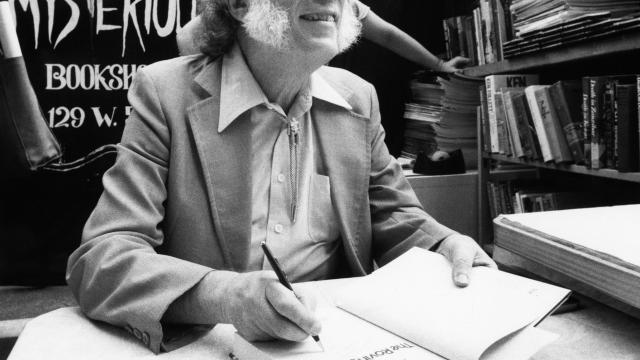Isaac Asimov was one of the great sci-fi writers of the 20th century. So, naturally, at the dawn of the space age, the military wanted to tap his brain. In 1959 he was approached by ARPA (now known as DARPA) to “think outside of the box” about how ideas are formed. His brief work for the organisation has never been published, until today.
As MIT Technology Review explains, Asimov took a few meetings with ARPA and Allied Research Associates in Boston, but ultimately decided against long term involvement with the organisations. Asimov was apparently afraid that any access to classified military material would limit his freedom of expression. And, rightly so, since it would have no doubt hampered his ability to publish fiction freely. However, Asimov did produce a single paper for the organisation that has never been published until today.
The thing that fascinates me most about the paper is that Asimov suggests ways for fostering creativity by giving people plenty of time to horse around. He points out that since ARPA and its contractors are funded by the government there’s the hurdle of not wanting to appear like public money is being wasted. So Asimov suggests that ARPA’s group brainstorming sessions revolve around short reports so that there’s no appearance of government waste.
Something tangible should be produced, but that’s not where the great ideas and real creativity will come from, Asimov insists:
Probably more inhibiting than anything else is a feeling of responsibility. The great ideas of the ages have come from people who weren’t paid to have great ideas, but were paid to be teachers or patent clerks or petty officials, or were not paid at all. The great ideas came as side issues.
To feel guilty because one has not earned one’s salary because one has not had a great idea is the surest way, it seems to me, of making it certain that no great idea will come in the next time either.
Yet your company is conducting this cerebration program on government money. To think of congressmen or the general public hearing about scientists fooling around, boondoggling, telling dirty jokes, perhaps, at government expense, is to break into a cold sweat. In fact, the average scientist has enough public conscience not to want to feel he is doing this even if no one finds out.
I would suggest that members at a cerebration session be given sinecure tasks to do — short reports to write, or summaries of their conclusions, or brief answers to suggested problems — and be paid for that; the payment being the fee that would ordinarily be paid for the cerebration session. The cerebration session would then be officially unpaid-for and that, too, would allow considerable relaxation.
Get paid for busy work, get the real work done while you’re fooling around. Wise words indeed.
You can read the entire essay over at MIT Technology Review.
Picture: Isaac Asimov signing books at a New York bookstore in 1984 via Associated Press
